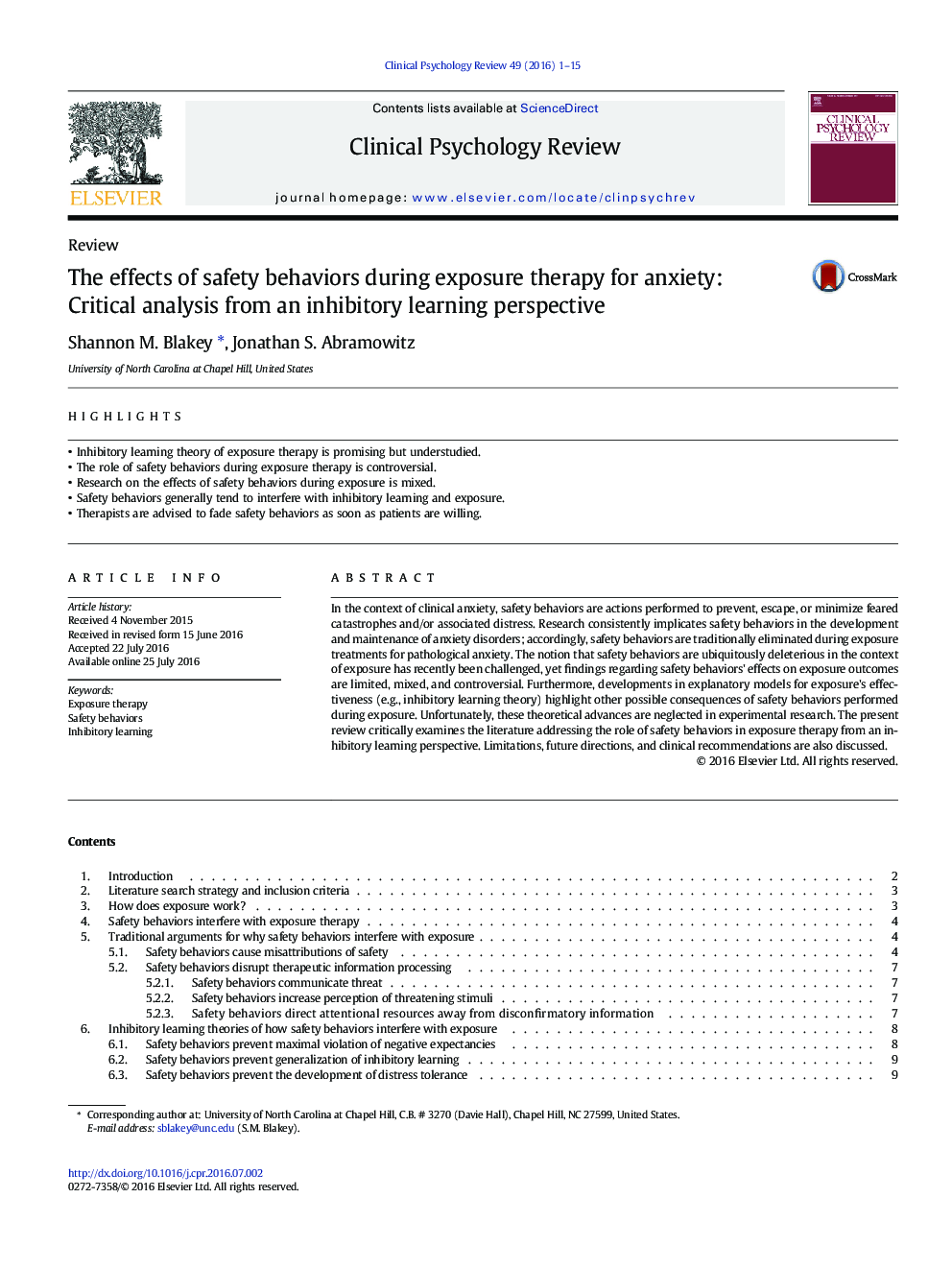| Article ID | Journal | Published Year | Pages | File Type |
|---|---|---|---|---|
| 903555 | Clinical Psychology Review | 2016 | 15 Pages |
•Inhibitory learning theory of exposure therapy is promising but understudied.•The role of safety behaviors during exposure therapy is controversial.•Research on the effects of safety behaviors during exposure is mixed.•Safety behaviors generally tend to interfere with inhibitory learning and exposure.•Therapists are advised to fade safety behaviors as soon as patients are willing.
In the context of clinical anxiety, safety behaviors are actions performed to prevent, escape, or minimize feared catastrophes and/or associated distress. Research consistently implicates safety behaviors in the development and maintenance of anxiety disorders; accordingly, safety behaviors are traditionally eliminated during exposure treatments for pathological anxiety. The notion that safety behaviors are ubiquitously deleterious in the context of exposure has recently been challenged, yet findings regarding safety behaviors' effects on exposure outcomes are limited, mixed, and controversial. Furthermore, developments in explanatory models for exposure's effectiveness (e.g., inhibitory learning theory) highlight other possible consequences of safety behaviors performed during exposure. Unfortunately, these theoretical advances are neglected in experimental research. The present review critically examines the literature addressing the role of safety behaviors in exposure therapy from an inhibitory learning perspective. Limitations, future directions, and clinical recommendations are also discussed.
